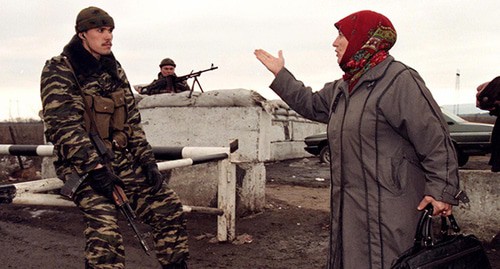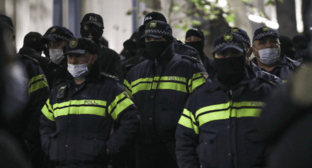
06 February 2020, 21:45
Eyewitnesses share their memories about assault of Grozny in 2000
On the 20th anniversary of the assault of Grozny, eyewitnesses of those events recalled how residents of the Chechen capital had to hide in basements from continuous shelling attacks.
The "Caucasian Knot" has reported that the second Chechen military campaign began on September 30, 1999, when the Russian troops entered the territory of Chechnya. The combat actions lasted 10 years, until August 2009.
It was documented that during the assault of Grozny in February 2000 and thereafter, civilians were subjected to violence from soldiers, said Oleg Orlov, a member of the board of the Human Rights Centre (HRC) "Memorial". "Soldiers killed civilians who were hiding from bullets: the soldiers burst into basements and shot and killed all the civilians they found," Oleg Orlov recalled.
At the beginning of the second military campaign and during the assault of the city, the situation of residents of Grozny was much worse than during the first Chechen military campaign, the "Caucasian Knot" correspondent was told by Said, a resident of Grozny. "It was much harder, worse, and more terrible. Shelling attacks and bombing never stopped. The city was shelled from 'Grad' launchers, and the Russian troops also used rockets," noted Said.
Khava, a resident of Grozny, said that her family members had to hide in a basement all the time. "During the second military campaign, it was much harder than during the first one. There were permanent shelling attacks and bombing. We felt fear especially at nights, since we didn't know what place they were attacking and where rockets fell. We spent all days in the basement and all nights there as well. We had to endure cold, damp, hunger, and lack of water. Today, it's hard to imagine how we survived," Khava shared her memories.
This article was originally published on the Russian page of 24/7 Internet agency ‘Caucasian Knot’ on February 6, 2020 at 04:12 pm MSK. To access the full text of the article, click here.
Source: CK correspondents




